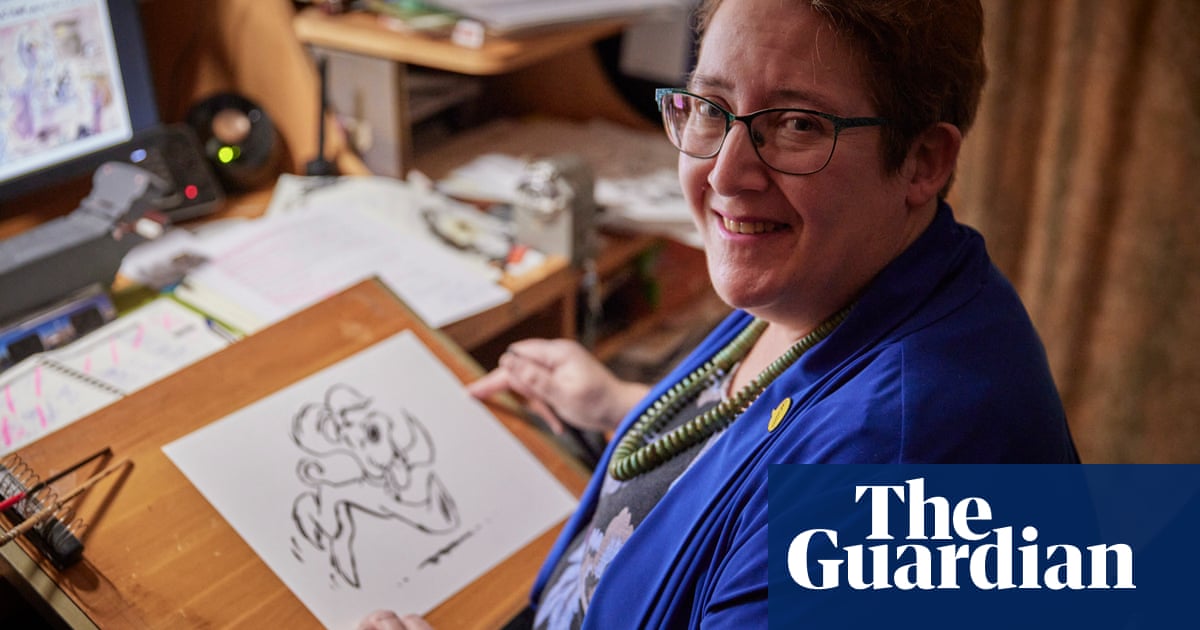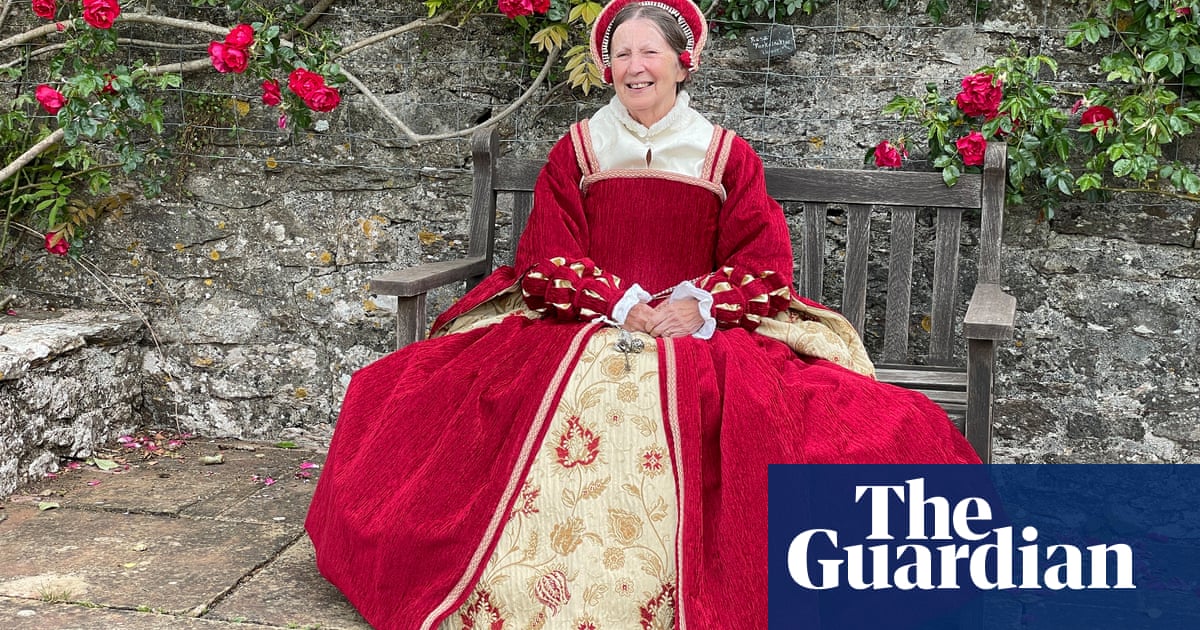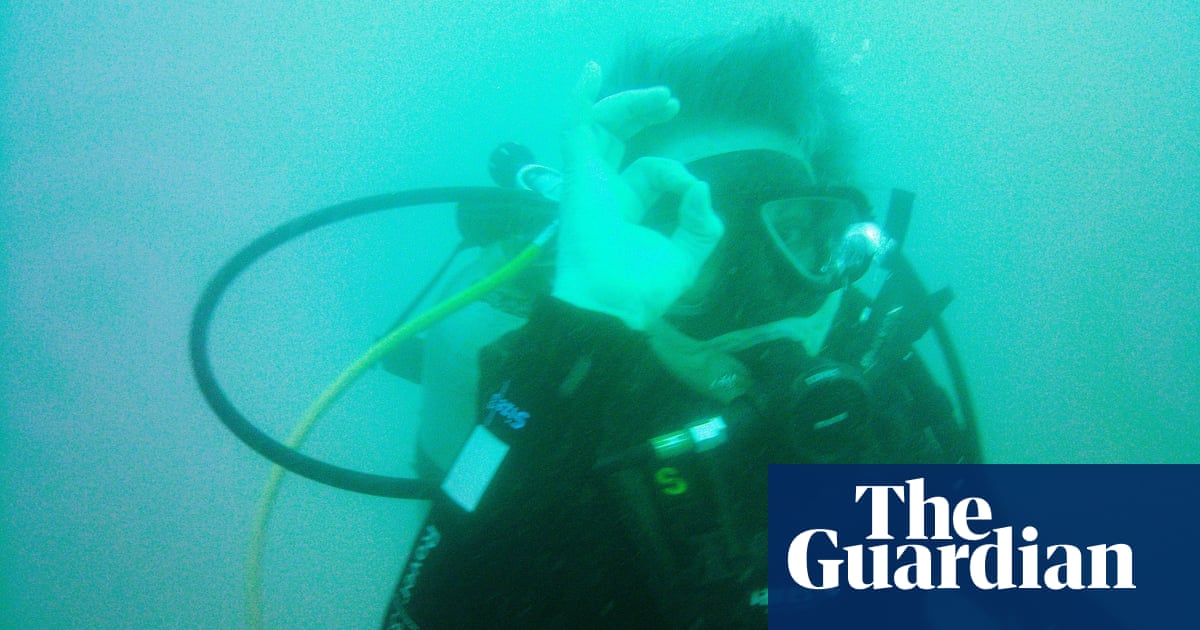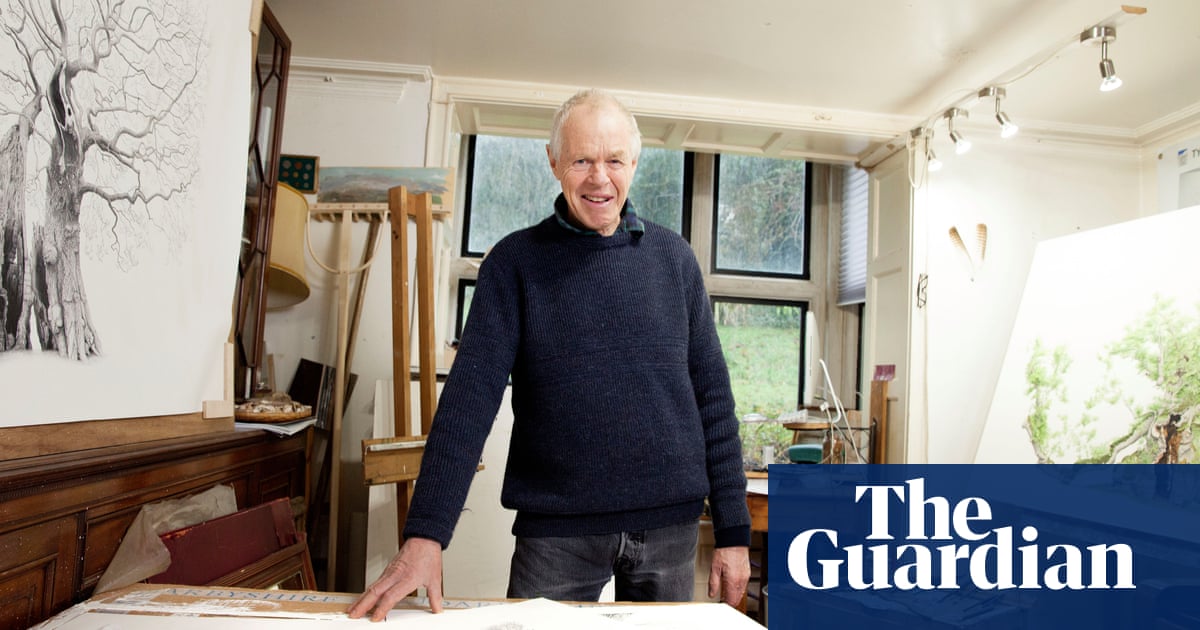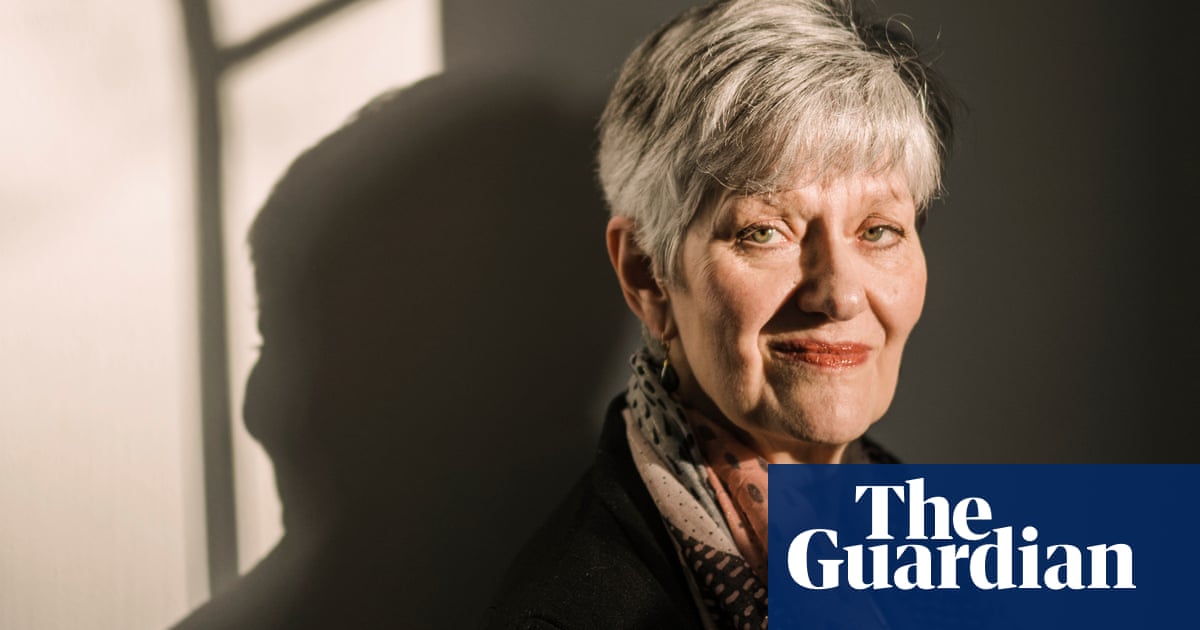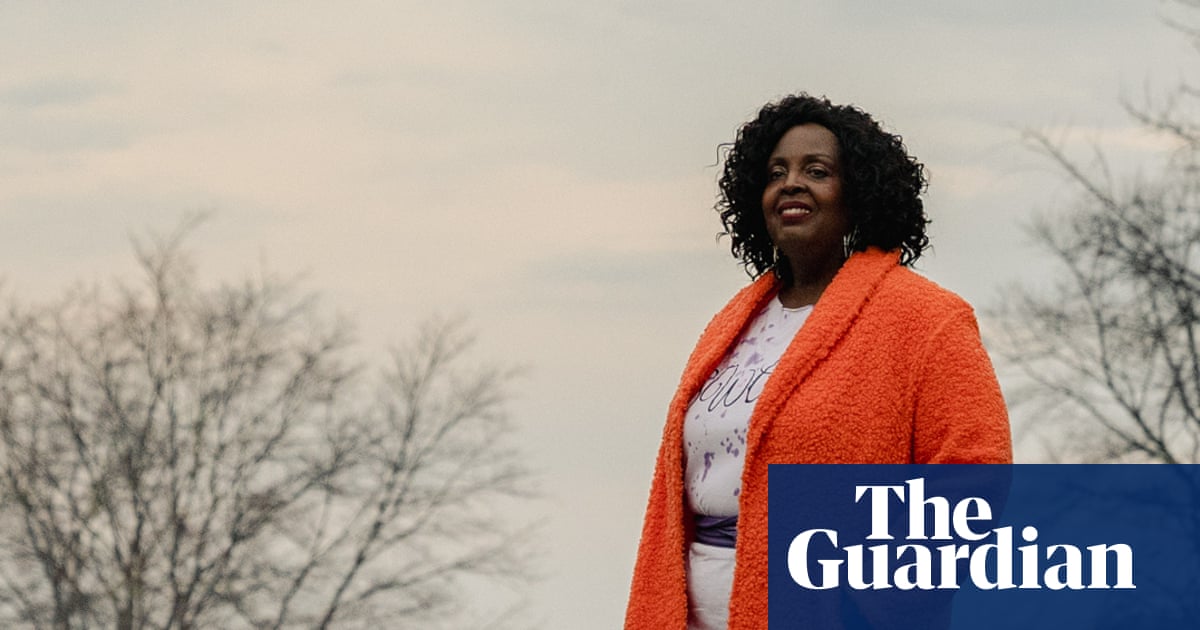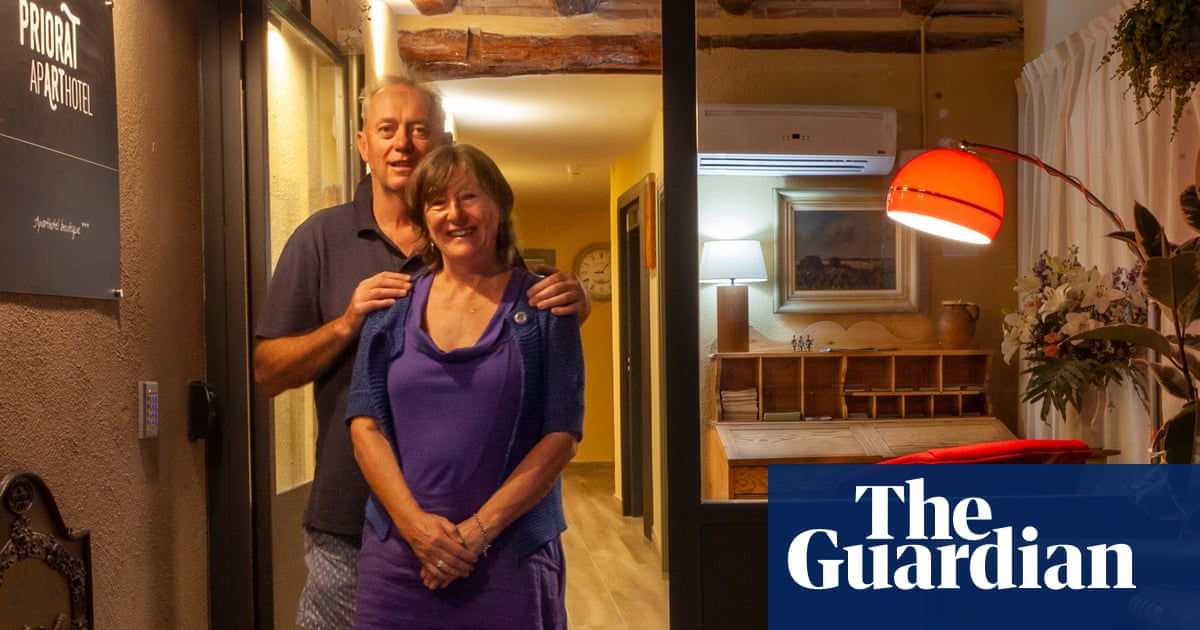
One day, Herbie Mensah was looking at the clothes piled in the cupboard under the stairs. He sells vintage fashion at Portobello Market in London, and “you get so much excess clothing”. He realised he couldn’t sell them, but couldn’t send them to landfill, either. “It was good-quality, designer labels. But it had holes. I really didn’t want to throw it away. I thought: ‘Experiment. Do something different.’”
He set about his collection of clothing with scissors and pins. He finished one piece – a dress made from shoe pockets – and took it to his market stall. It sold. “You think: ‘This is interesting.’ Next thing, I was getting orders.” He started to make trousers with overlaid prints and sliced and spliced jackets. “My kitchen became my studio.”
That was 18 months ago, when Mensah was 62. Now he rents a studio near his home in Kensal Green, north-west London, and sells his creations through his website and Instagram. Sarah, his wife of 25 years, takes care of the admin. Sometimes Mensah stays up all night. “I can work for 24 hours and it will feel like five minutes.”
Years ago, his mother kept a sewing machine at home and did piecework for high-street shops. She and Mensah moved to London from Ghana when he was three; his dad had arrived the year before, to study law. On Sundays, the family dressed for church. His dad wore mohair suits from a local tailor.
Mensah became “a shopaholic” and “a young soul boy” – “baggy trousers, pointed shoes, dungarees”. He worked in shops, but “each night of the week there was a club going on somewhere”.
One evening in the early 1980s, after he’d been shopping, Mensah didn’t feel like going home. He arrived at the Embassy, a club on Bond Street, before it opened. Two men were already waiting, one of whom happened to be Michael Collins, the manager of Worlds End, Vivienne Westwood and Malcolm McLaren’s boutique on Kings Road. They all went for a burger, and Collins “asked me if I was interested in doing a fashion show for Vivienne Westwood”, Mensah says. “I said: ‘Yeah, great,’ not thinking anything of it.”
The next day, Collins phoned and invited Mensah to the shop. “I was totally amazed by the weird and wonderful people coming in,” Mensah says. Collins booked him for Westwood’s Buffalo Girls collection and a few days after the show, Westwood rang. “She asked if I wanted to do a show in Paris. From being one of those boys hanging around on street corners with your mates causing a bit of trouble, I was flying around the world modelling.”
As well as becoming a catwalk regular for Westwood, Mensah modelled for young designers including John Galliano. He met only a handful of black British models: “We were a collective.” Through Westwood, he met McLaren, who sent him for singing lessons and paired him with the Slits’ Viv Albertine. Later he joined the band Rin Tin Tin, and released a single produced by Pete Waterman. “Absolute garbage,” he says.
When the modelling work began to dry up in the 1990s, “I wanted to do something worthwhile”, he says. He took a voluntary role with a housing association, studied in the evenings, and eventually got a job in a day centre, working with people with autism and learning difficulties. That was his life for more than 20 years, but fashion never went away. Mensah had a vintage shop on Portobello Road in the mid-00s and, shortly before Covid hit, he returned to selling clothes.
But upcycling has taken his love of fashion to a different place. “My customers are an eclectic mix, from teenagers up to people in their 70s – models, singers, artists, pop stars.” Sometimes, a customer requests a receipt and Mensah recognises in their email address the name of a big fashion house.
Working creatively “is like a breath of fresh air”, he says. “That keeps you going. Keeps you alive.” He has also returned to modelling. “Now it’s embracing all genders, races, ages.” Three of his four children model, too.
Occasionally, Mensah goes to a club. “I still like to dress up. I can still dance with the rest of them.”




